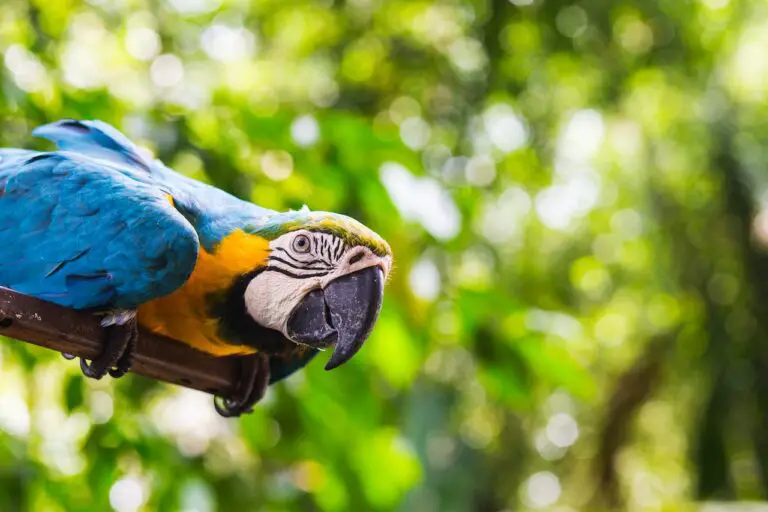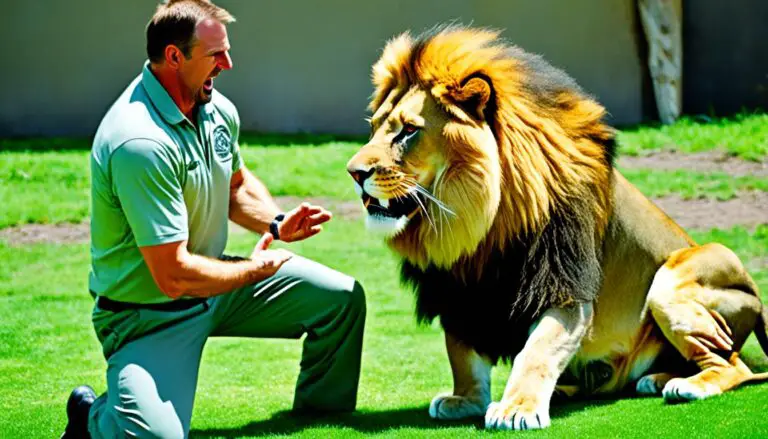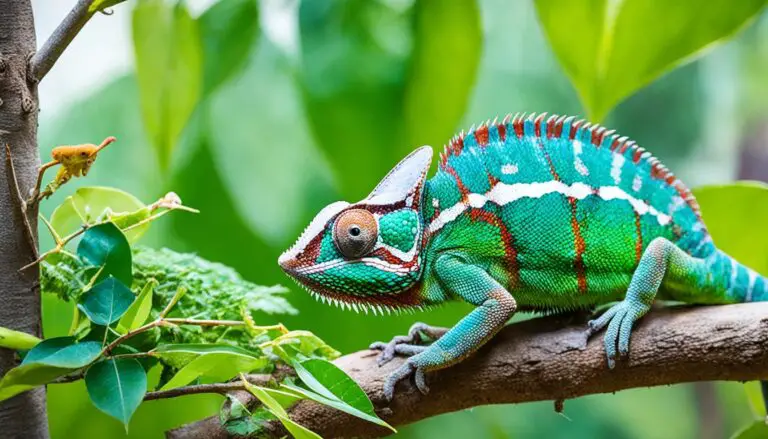How to Train Your Exotic Pet to Use a Litter Box [+ Practical Tips]
Having an exotic pet comes with unique challenges, and one of them is teaching them proper bathroom habits.
Litter box training is not limited to cats and dogs; it can also be successfully implemented with exotic pets.
Whether you have a bird, reptile, or small mammal, teaching them to use a litter box can significantly enhance their living environment and simplify cleanup.
In this article, we will explore practical techniques to train your exotic pet to use a litter box.
Key takeaways:
- Litter box training can be successfully implemented with exotic pets, providing a cleaner and more hygienic living environment.
- Choose a litter box that is appropriate in size and accessibility for your exotic pet, considering their specific needs and preferences.
- Introduce the litter box gradually, allowing your pet to become familiar with it at their own pace.
- Use positive reinforcement techniques such as treats and praise to encourage your exotic pet to use the litter box consistently.
- Be patient and consistent throughout the training process, understanding that each pet learns at their own pace.
- Address challenges and setbacks with troubleshooting strategies tailored to your pet’s needs.
- Maintain a clean litter box by regularly removing waste and replacing soiled litter.
- Adapt the training techniques to suit the requirements of different exotic pets, such as birds, reptiles, and small mammals.
- Enjoy the bonding experience and the benefits of a successful litter box training journey with your exotic pet.
Why Litter Box Training Matters
Litter box training is an essential aspect of pet care, even for exotic animals.
By teaching your exotic pet to use a litter box, you can create a cleaner and more hygienic living space for both you and your pet.
Additionally, it provides them with a designated area for elimination, reducing the risk of accidents and messes throughout your home.
Choosing the Right Litter Box
When it comes to selecting a litter box for your exotic pet, there are a few factors to consider.
First, ensure that the size of the litter box is appropriate for your pet’s size and breed.
It should be large enough for them to move around and eliminate in comfortably.
Accessibility is also crucial, especially for smaller or older animals that may have difficulty climbing into high-sided litter boxes.
Another important consideration is the litter box material.
Different exotic pets may have specific preferences, so it’s crucial to choose a material that they find comfortable.
For example, birds may prefer shallow trays with newspaper lining, while reptiles may require a substrate that mimics their natural habitat.
Introducing the Litter Box to Your Exotic Pet
Introducing your exotic pet to the litter box should be done gradually to prevent overwhelming them.
Start by placing the litter box in a quiet and easily accessible location within their living area.
Allow your pet to explore the box at its own pace, becoming familiar with its presence and scent.
During this acclimatization process, it’s essential to observe your pet’s behavior closely.
Look for signs of curiosity or interest in the litter box. If they show signs of anxiety or avoidance, give them more time to adjust before proceeding to the next step.
Encouraging Your Exotic Pet to Use the Litter Box
Positive reinforcement is the key to successfully training your exotic pet to use the litter box.
Whenever your pet shows signs of wanting to eliminate, gently place them in the litter box.
Use a cue word or phrase, such as “go potty” or “use the litter box,” to associate the action with the desired behavior.
When your pet uses the litter box correctly, immediately praise and reward them with treats or verbal praise.
This positive reinforcement reinforces the connection between using the litter box and receiving a reward, encouraging your exotic pet to repeat the behavior.
Consistency is vital during the training process.
Ensure that you consistently place your pet in the litter box after meals, naps, or whenever you notice signs of needing to eliminate it.
Establishing a routine helps your pet understand the purpose of the litter box and reinforces good habits.
Patience is also crucial when training your exotic pet.
Remember that each animal is unique, and the learning process may take time.
Avoid scolding or punishing your pet if they have accidents outside the litter box, as this can create fear and hinder the training progress.
Instead, remain patient and reinforce positive behaviors.
Dealing with Challenges and Setbacks
Litter box training may encounter challenges along the way.
It’s important to understand common obstacles and be prepared with effective troubleshooting strategies. Some challenges you may encounter include:
- Reluctance to use the litter box – If your exotic pet shows reluctance to use the litter box, try experimenting with different litter types or substrates that align with their natural instincts. For example, reptiles may prefer sand or soil-like substrates, while small mammals may prefer shredded paper or wood shavings.
- Accidents outside the litter box – Accidents can happen, especially during the early stages of training. Clean up any accidents thoroughly to eliminate lingering smells that may attract your pet to repeat the behavior. Increase supervision and redirect your pet to the litter box whenever they show signs of needing to eliminate.
- Fear or anxiety – Some exotic pets may develop fear or anxiety associated with the litter box. Gradually desensitize them by introducing positive experiences near the litter box, such as offering treats or engaging in playtime. Create a calm and safe environment to alleviate any fears.
Maintaining a Clean Litter Box
To ensure your exotic pet continues to use the litter box consistently, it’s crucial to maintain cleanliness and hygiene.
Regularly clean the litter box, removing waste and replacing soiled litter promptly.
This not only keeps the litter box fresh and inviting for your pet but also helps prevent unpleasant odors and potential health issues.
Choosing the right litter is vital for maintaining cleanliness.
Some exotic pets may have specific preferences, so experiment with different litter types to find the one your pet prefers.
It’s recommended to avoid scented litter, as the strong fragrance may deter some animals.
Tips for Specific Exotic Pets
Training techniques can vary depending on the type of exotic pet you have.
Here are some tips for training specific exotic pets to use a litter box:
- Birds – Provide a shallow tray with newspaper lining at the bottom of their cage. Gradually move any droppings into the tray to encourage them to use it for elimination.
- Reptiles – Mimic their natural environment by using a substrate that resembles their native habitat, such as sand or soil. Place the litter box in the corner of their enclosure, as reptiles often have specific areas they prefer for elimination.
- Small mammals – Use litter boxes specifically designed for small animals, with low sides for easy access. Line the litter box with suitable bedding material, such as shredded paper or wood shavings.
Conclusion
Litter box training can be a beneficial and practical solution for exotic pet owners.
By following the appropriate techniques and being patient and consistent, you can successfully teach your exotic pet to use a litter box, enhancing their living environment and simplifying cleanup.
Remember to choose the correct litter box, introduce it gradually, and reinforce positive behaviors through rewards and praise.
Litter box training may require time and effort, but the results will contribute to a cleaner, more hygienic, and enjoyable experience for both you and your exotic pet.
Remember to adapt the training methods to suit the specific needs and preferences of your pet.
With consistency, positive reinforcement, and patience, you can successfully train your exotic pet to use a litter box.
Now that you have learned the essential steps for litter box training, it’s time to embark on this rewarding journey with your exotic pet.
Enjoy the process of bonding and teaching them new habits that will benefit both of you.
FAQs
Can exotic pets be trained to use a litter box?
Yes, many exotic pets can be trained to use a litter box, including certain species of small mammals, reptiles, and birds.
However, it’s important to research the specific needs and behaviors of your exotic pet to ensure successful training.
What type of litter should I use for my exotic pet’s litter box?
The choice of litter depends on the species of your exotic pet.
For small mammals, paper-based or compressed pellet litters are often recommended.
Reptiles may require a specific substrate that mimics their natural environment, such as reptile-safe sand or bark chips.
Birds may benefit from using particular litter designed for their needs, like paper pellets or corn cob bedding.
How long does it usually take to litter box train an exotic pet?
The duration of litter box training can vary depending on the individual pet and species.
It may take several weeks or even a few months to fully train an exotic pet to use a litter box consistently.
What if my exotic pet refuses to use the litter box?
If your pet is reluctant to use the litter box, try adjusting the litter type, location, or size of the box.
Also, ensure that you are providing consistent positive reinforcement and avoiding punishment.
Can I use a regular cat litter box for my exotic pet?
While some exotic pets can use a regular cat litter box, it’s essential to consider their specific needs and preferences.
Choose a litter box that is suitable for their size and species to ensure their comfort and success in using it.
How often should I clean the litter box?
Regular cleaning is essential to maintain a hygienic litter box.
Remove waste and replace soiled litter as needed.
Cleaning frequency may vary depending on the pet and the type of litter used.
Can older exotic pets be litter box trained?
Yes, older exotic pets can be trained to use a litter box.
However, it may require additional patience and persistence.
Follow the same training techniques and gradually introduce the litter box to them.
Peter Stones is the founder of Exotic Pets Place, the leading online resource for exotic pet care information.
With over 10 years of hands-on exotic pet ownership experience, he is deeply passionate about sharing his expertise to help others properly care for their unusual pets.
When he's not writing extensively researched articles or connecting with fellow exotic pet enthusiasts worldwide, you can find Peter at home tending to his own beloved menagerie of exotic animals.

![How to Train Your Exotic Pet to Use a Litter Box [+ Practical Tips], a fluffy puppy in a box](https://exoticpetsplace.com/wp-content/uploads/2023/05/How-to-Train-Your-Exotic-Pet-to-Use-a-Litter-Box-Practical-Tips-a-fluffy-puppy-in-a-box.jpg)





